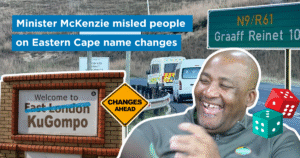The Democratic Alliance (DA) has received the Speaker of the National Assembly’s correspondence rejecting our motivation for a roll call vote during the vote in the House tomorrow. She bases this decision on the connectivity issues MPs might face due to load-shedding. She makes this crucial decision of principle based on feeble logistical issues.
More importantly, she does this despite the fact that a precedent has been set when she acceded to the same request back in March this year.
This can only mean Mapisa- Nqakula is on over-drive, keen to protect the President and the executive and less interested in accountability and the critical role Parliament must play.
A roll call voting mechanism is used in parliaments across the world, and even in South Africa’s own provincial legislatures, where public representatives are called upon individually by the presiding officer to publicly verbalise and cast their vote in a parliamentary motion.
The DA called for this voting procedure to be employed as it is the only means of allowing Members of Parliament to vote with their conscience and not in party voting blocks, while still adhering to the constraints of a hybrid model for the parliamentary sitting and in the absence of a chamber large enough to accommodate all 400 MPs.
A roll call voting procedure ensures that the South African people are afforded the necessary transparency in our parliamentary democracy, where citizens can witness exactly how the people representing their interests vote on crucial and life-changing matters in the National Assembly.
Despite this, we will be voting for the impeachment process to continue tomorrow. The reality is that a sitting head of state has serious findings made against him and Parliament must satisfy itself – through an impeachment inquiry – on whether or not the President broke the law and by extension his oath of office.
We urge all other political parties to do so, as a matter of principle and commitment to the rule of law.




